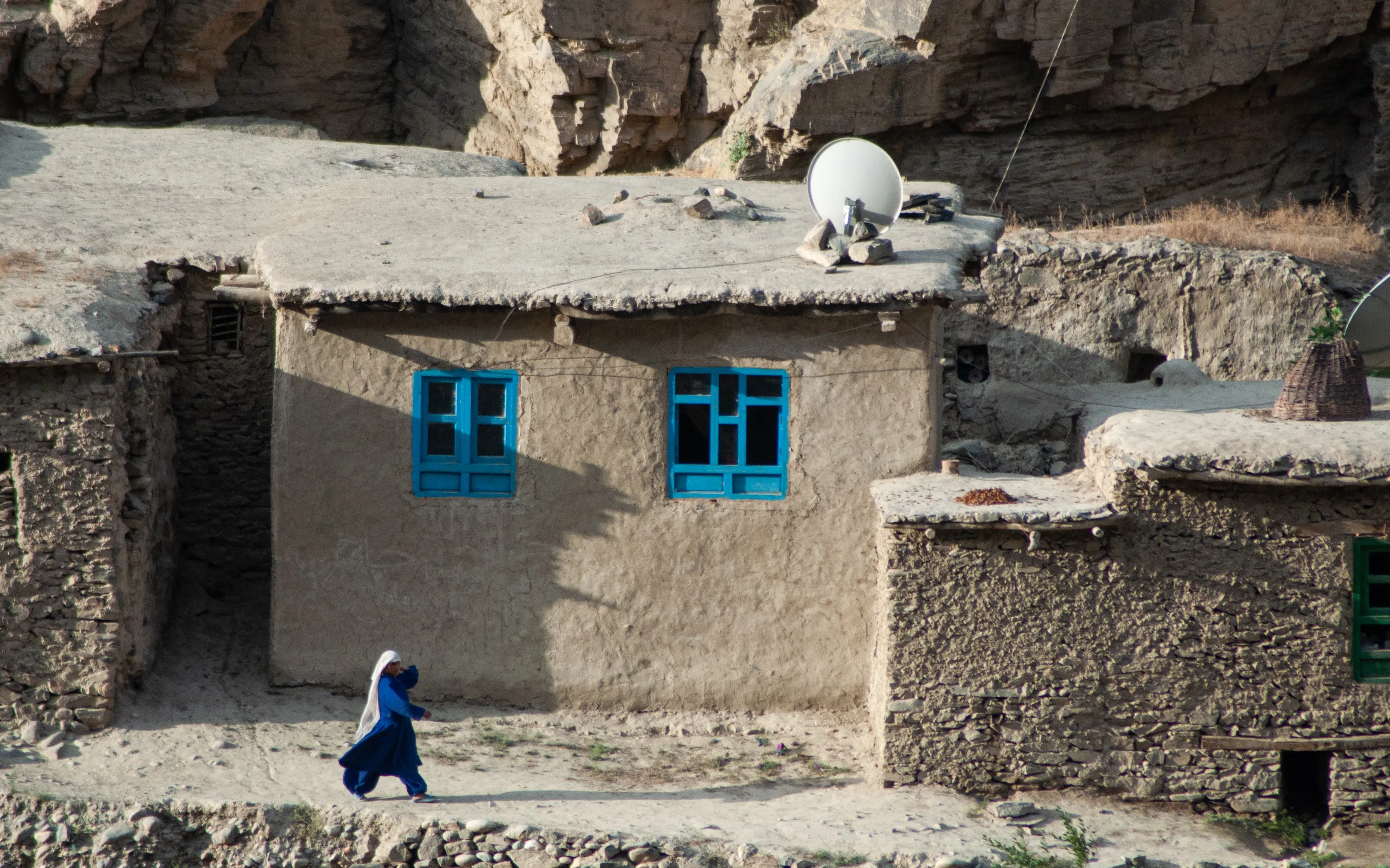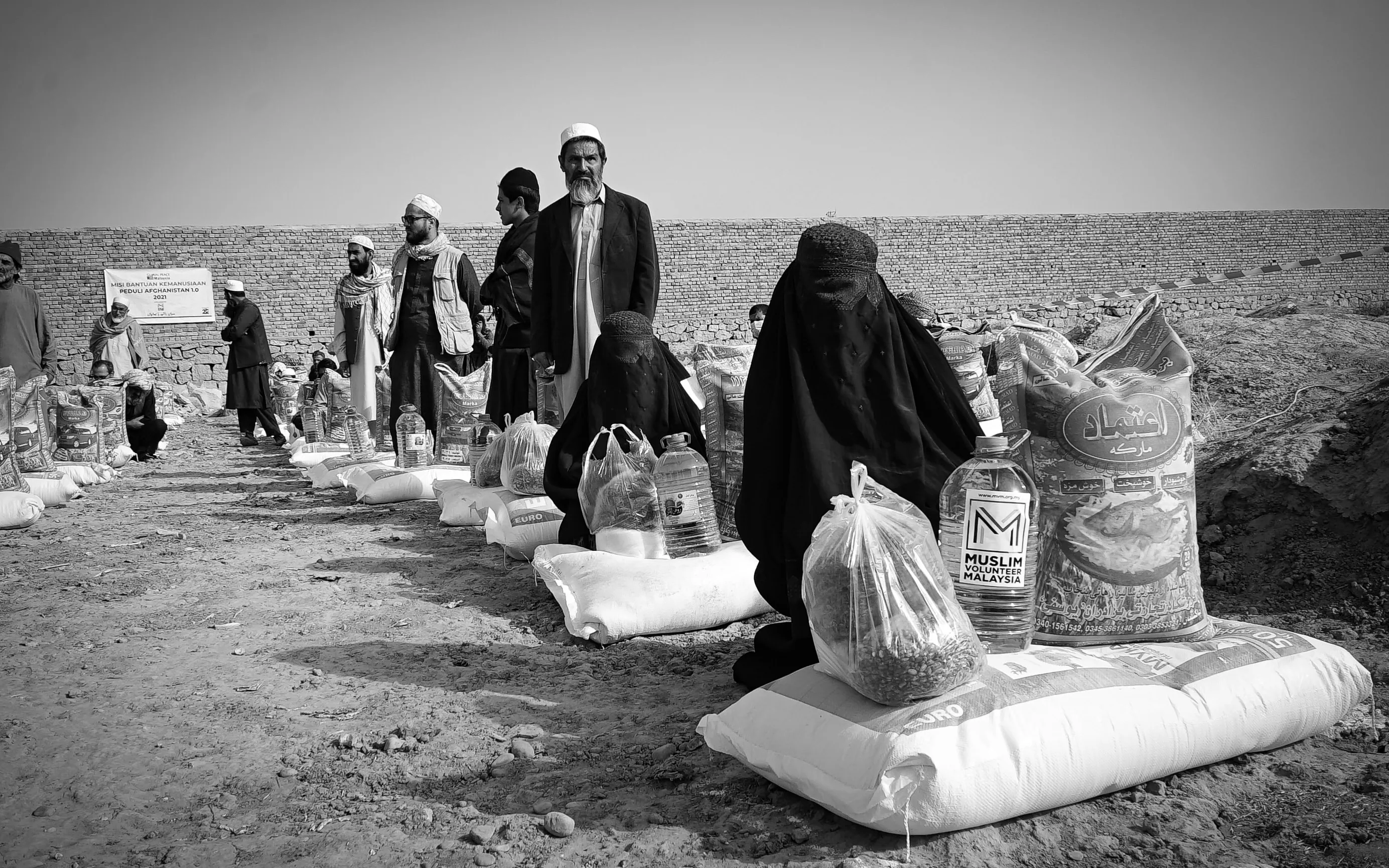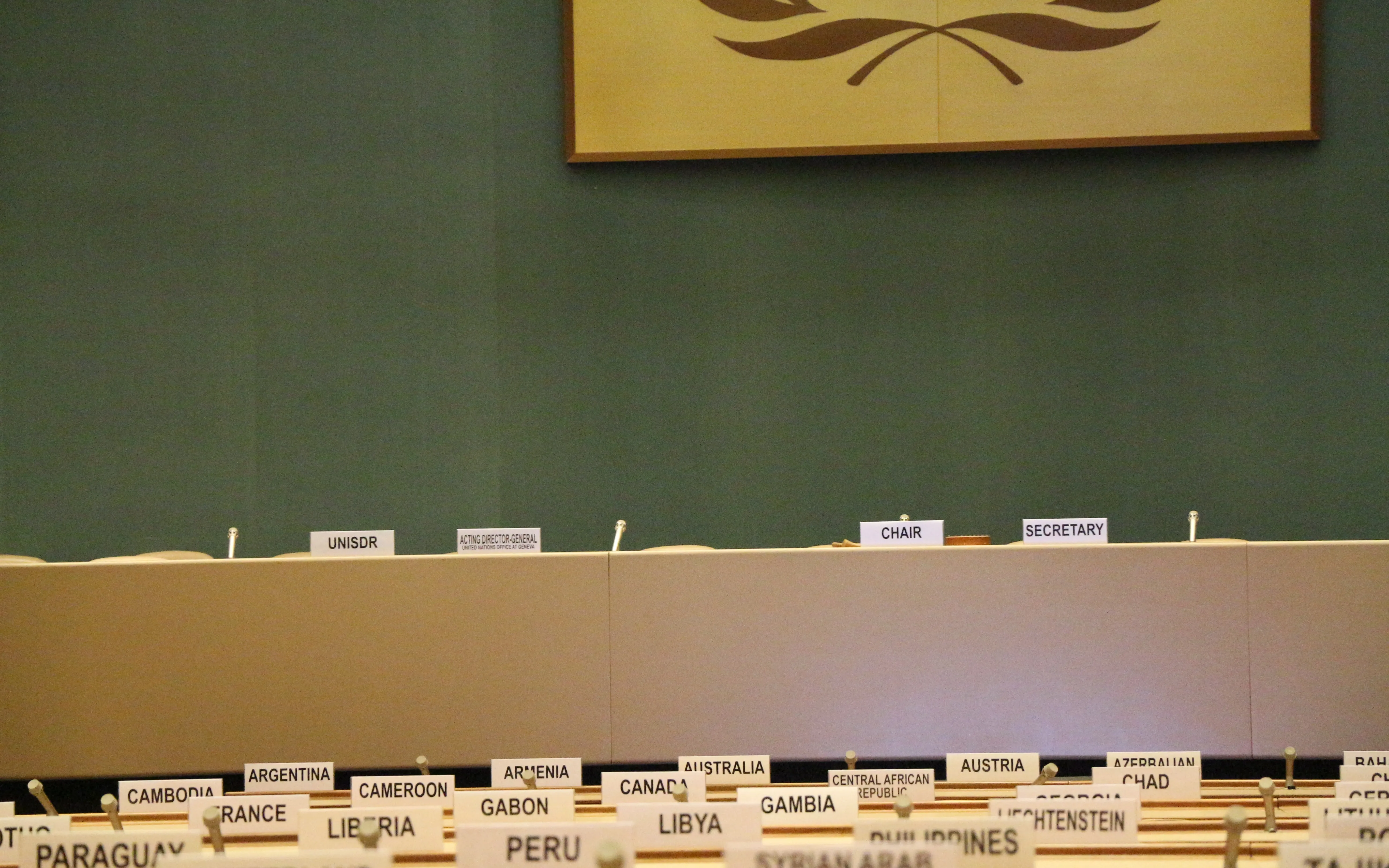The prohibition imposed by the Taliban regime has been extended to female personnel of the United Nations, who have opened the door to suspending their task in the country if the ban persists.
"Without our female staff, the humanitarian community cannot effectively reach women and girls, and with over 28 million people in desperate need of assistance to survive, this act will cut off life support for people." This is how various international NGOs, such as Save the Children, Action Against Hunger, and World Vision, among others, have expressed themselves in a joint statement in response to a new measure by the Taliban authorities that further deepens the violation of women's rights in Afghanistan.
The organizations present in the country criticize the decision of the Afghan authorities, who have imposed a ban on female aid workers carrying out their work in Afghanistan to help a population that can barely subsist in a very difficult context. This regime's veto has also been extended to United Nations agencies.
"With Afghanistan facing record levels of hunger, the cost of this ban will be measured in lives lost," they argue. Therefore, they demand that the de facto authorities "lift the ban and allow all female aid workers in Afghanistan to return to work immediately." The organizations that signed the statement are Save the Children, Action Against Hunger, the Danish Refugee Council, INTERSOS, the Norwegian Refugee Council, and World Vision.
A regime that undermines the fundamental rights of women
The country has been suffering from an extremely grave situation for decades. And the tragedy has not stopped, on the contrary, it has worsened with the return of the Taliban after overthrowing the US-backed government in August 2021. Since then, the ultra-conservative regime has restricted rights and freedoms to the population, especially women, who have been excluded from secondary education and university, and their presence in the workforce has been limited.
In this way, the supposed conciliatory image that the Taliban wanted to project to the international community when they regained power was quickly buried. And with it, for thousands of Afghan women, not only their hopes and aspirations were buried, but also their survival and that of their families.
"I am very afraid of the consequences this may have for the entire community," explains Zinab (a fictitious name), a trainer in a UNHCR project for women's job insertion in the country, in statements collected by the UN refugee agency. She adds: "If they don't have a job, they won't have money and won't be able to support their family; what will be the future of their children?".
Sanam (a fictitious name), eighteen, participated in the UNHCR initiative and financially supports her family since her father died. She also expresses to the agency how she felt about the Taliban regime's measures: "I was very proud to be able to support my family like a man, and I felt very sad and disappointed; at night, worry keeps me from sleeping." Since the prohibitions came into effect, she has lost two-thirds of her monthly income.
The United Nations charges against the prohibition and considers suspending its task in the country
In this scenario, the prohibition imposed on women aid workers to carry out their task in the country, censored by international NGOs, deprives the population of help and seriously worsens their already precarious situation, as the UNHCR data shows. More than 28.3 million people need urgent help to survive, 20 million will suffer from acute hunger, and around 875,000 children will suffer from severe acute malnutrition in 2023.
The statement by international NGOs comes after the United Nations Assistance Mission in Afghanistan (UNAMA) warned that Afghan authorities had prevented their female personnel from entering their offices and working in the country."Females are essential to UN operations, including the provision of life-saving assistance," stressed Stéphane Dujarric, spokesman for the Secretary-General of the organization, António Guterres, who lamented that "the implementation of this decision will harm the Afghan people, millions of people who need this help."
However, the United Nations hopes to fulfill its commitment to the Afghan population and has reiterated that they will continue to seek all avenues to ensure help to the most vulnerable people, especially women and girls. These orders, according to Dujarric, violate the fundamental rights of women and infringe the principle of non-discrimination.
In this context, which the UN asserts it cannot accept, the organization is at a crossroads and is considering all scenarios, including withdrawing from the country. "The Taliban authorities are seeking to force the United Nations to make a terrible decision between staying and continuing to support the Afghan people or adhering to the rules and principles that we are obligated to respect," said UNAMA.
Rosa Otunbayeva, the mission's director, has announced that the United Nations is reviewing the organization's operations in Afghanistan and has set a deadline of May 5 to make a decision. "During this period, the UN in Afghanistan will carry out all necessary consultations, make the required operational adjustments, and accelerate the preparation of alternatives for all possible outcomes," she said.
A total of 3,900 people work for the UN in the country, of whom 3,300 are Afghan, including 400 women. Since the ban, the organization has instructed its staff in the country, both male and female, not to attend offices in person, except for those performing essential tasks.









Add new comment